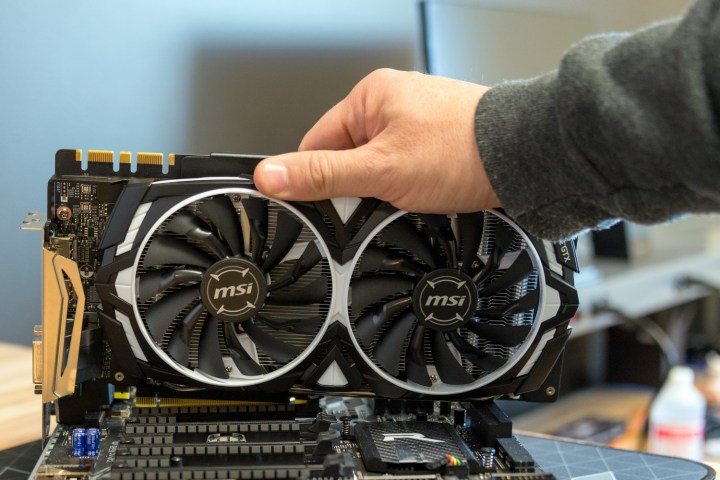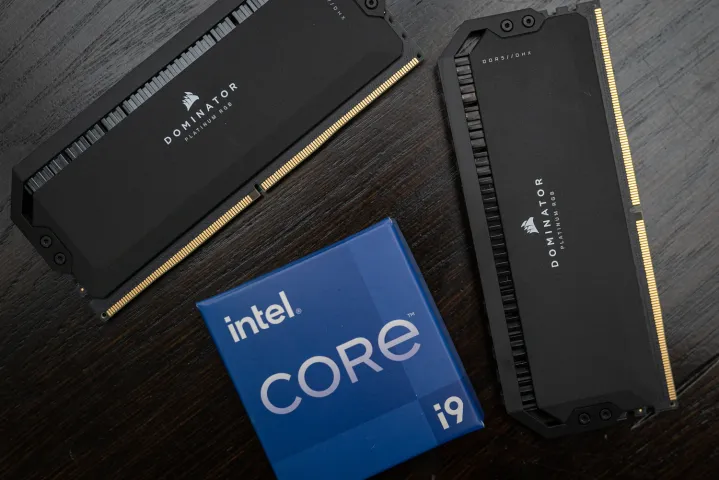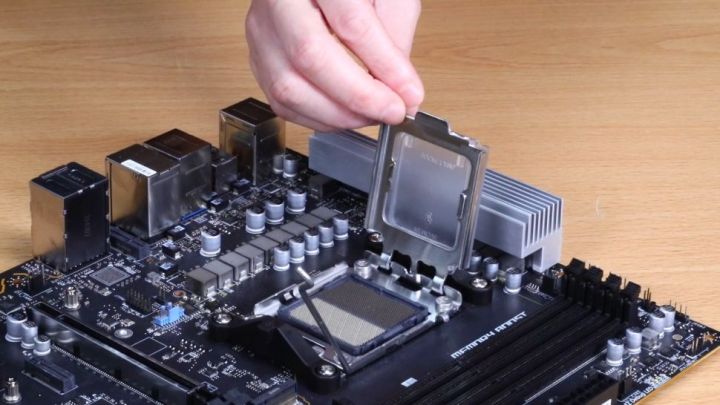You can finally build a PC now, and thank goodness for that. It’s been just shy of two years since the pandemic sent the computing industry into a tailspin and the GPU shortage made building a new desktop computer prohibitively expensive. We can all share a collective sigh of relief, but just because you can build a PC right now doesn’t mean you should.
A cornucopia of next-gen improvements is aligned for the end of the year, and building a computer now could lock you into a machine that’s expensive to upgrade, trailing in performance, and incompatible with standards like DDR5 that we only see once (maybe twice) in a decade. We haven’t been in a similar situation in nearly eight years, but the good news is that things shouldn’t stay this way for long.
We’ve been here before

High graphics card prices have been the only limiting factor for building a new PC over the last couple of years. CPUs and RAM saw a brief spike, but let’s be honest — an extra $50 here or there wasn’t the deciding factor for most would-be PC builders. Graphics card prices are down, and there’s a good chance they’ll continue to get cheaper.
I wrote previously about how next-gen GPU prices will come down to crypto, and that’s still true. It just doesn’t look like crypto is going to see a boom soon. Recent reports show GPU prices crashing along with Ethereum — the main driver of the GPU shortage — and week-over-week, I’ve continued to spot better deals on brand new graphics cards.
Building a PC right now is almost guaranteed to get you a worse value.
We’ve been here before, around mid-2018. Following the GPU shortage in late 2017, Nvidia and AMD were left sitting on a massive supply of GPUs that there was no demand for, and we’re seeing a repeat of that right now. AMD, Apple, and Nvidia just cut GPU orders with their supplier in late June, illustrating the supply-and-demand balance that will carry into next year.
Sounds like a great time to buy, right? Not quite. Building a PC right now is almost guaranteed to get you a worse value than waiting until later in the year, especially as next-gen components loom on the horizon and push last-gen prices down.
Triple whammy for next-gen

Nvidia is working on its RTX 40-series graphics cards, and AMD has the RX 7000 teed up — both are expected to launch later this year. It’s tried and true advice: Don’t build a new PC when next-gen options are mere months away. But this year, we have a triple whammy with PC components.
Before we get next-gen GPUs, we’ll likely see AMD’s Ryzen 7000 and Intel’s Raptor Lake processors. Not only will these platforms offer the typical performance improvements we see each generation, but they’ll also come with platform features that aren’t readily available now (DDR5 and PCIe 5.0 chief among them).
This is especially a problem if you want an AMD processor at the heart of your system. AMD has supported its AM4 socket for every Ryzen generation so far, but Ryzen 7000 is the first time we’re seeing a departure with its AM5 socket.
It’s been eight years since the stars unfortunately aligned like this — when Intel first introduced DDR4 to its Haswell-E platform. Since then, it has been relatively smooth sailing for PC upgrades, and it looks like that will be the case starting in the back half of 2022. AMD has confirmed that it will keep AM5 around for as long as AM4, and Intel has said Raptor Lake will support the LGA1700 socket that current-gen Alder Lake processors use.

Power could be a problem if you build a new PC now, too. Nvidia’s RTX 40-series graphics cards, at least, are rumored to carry massive power requirements. Even if you build with one of the best power supplies now, it may fall short when you want to throw a new GPU in your build down the line.
Although it’s impossible to truly “future-proof” a PC, you can back yourself into a corner if you build a new computer now. You’ll be sitting on a powerful PC for about six months before it’s trounced by next-gen components — next-gen components that are set up to support standards that will last well beyond a single CPU or GPU generation.
Time flies when you’re (not) having fun

I don’t think anyone would disagree that the last two years have been a blur, but that’s especially true for staunch PC enthusiasts. With part shortages, massively inflated prices, and a pandemic that made a high-powered PC all the more attractive, even normal can seem like great.
But it’s important to remember how far we are from the launch of current-gen parts, where we’d normally expect prices to drop. Even without considering the unique situation PC components are in, you’re almost sure to spend more building a PC now than you would with the same build in three months. We’ve continued to see GPU prices drop, DDR4 RAM is getting cheaper as DDR5 prices become more competitive, and current-gen CPUs, despite being on sale, aren’t going to suddenly get more expensive.
It’s rare that so many factors change between generations, and that makes it a uniquely bad time to build a PC. Assuming we don’t have another pandemic and crypto stays relatively low, waiting a few months to build a PC will be cheaper and ensure you have a computer that’s compatible with the latest hardware. And if we find ourselves in a 2020 situation again, a new PC is probably the least of our worries.




